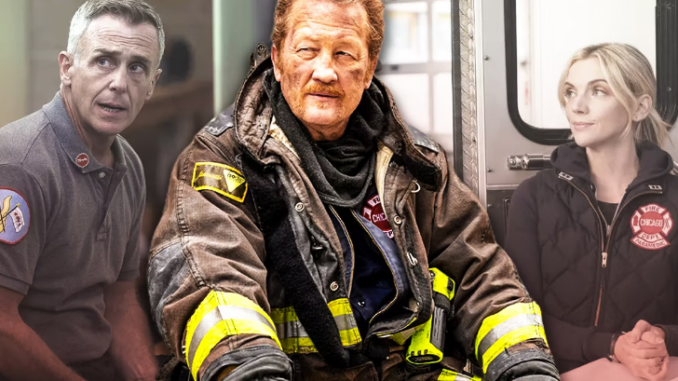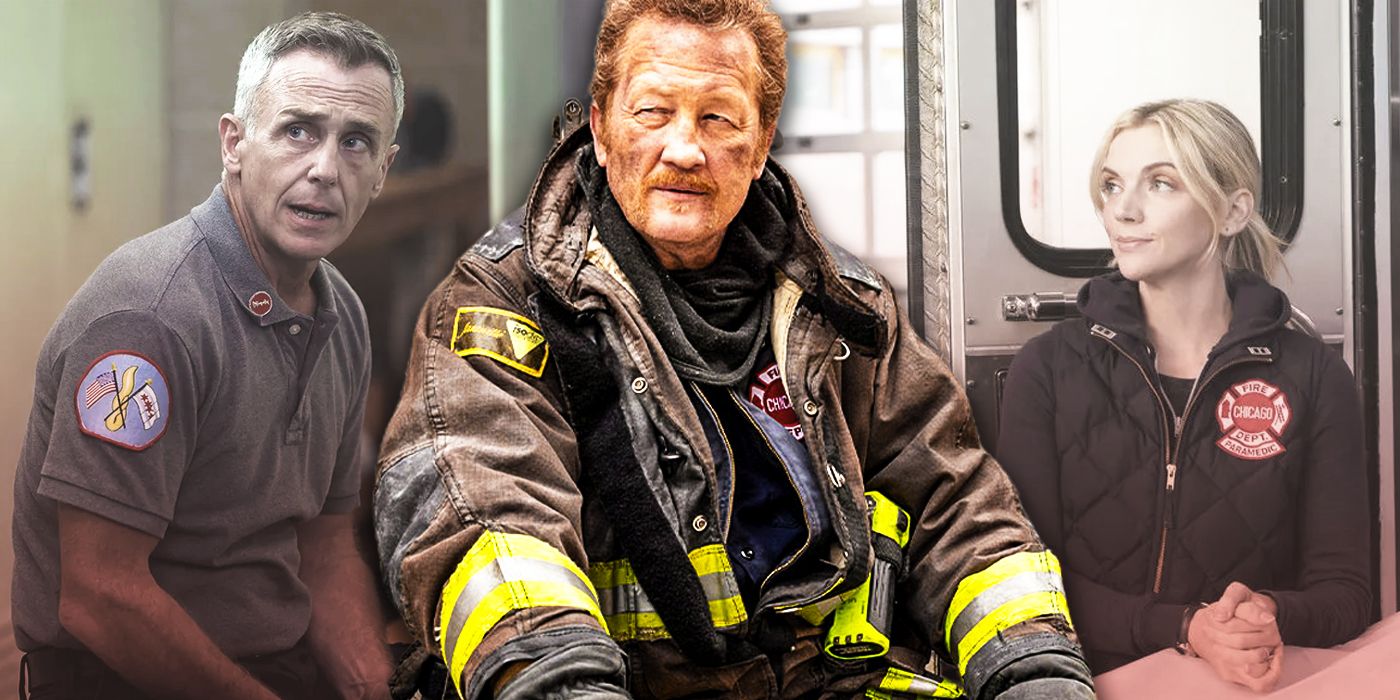
Chicago Fire Season 12 Episode 2 Review: Home Run for the Supporting Cast
Chicago Fire’s cast is pretty large, and many of the actors have been with the NBC show for a long time. However, because of the size of the cast, there are two groups: the main characters and the supporting actors, who have notable episodes but aren’t the ones who consistently drive the plot. Chicago Fire Season 12, Episode 2, “Call Me McHolland,” puts the spotlight on the entire supporting cast — while also drawing attention to how long they’ve been there.
“Call Me McHolland” takes its name from Randall “Mouch” McHolland’s desire to change his image after his most recent near-death experience. It also features important storylines for Joe Cruz and Christopher Herrmann, and some screen time for Tony. The episode felt like a great acknowledgement of the fact that success comes from the entire Chicago Fire cast — not just the most popular ones — but also used that to tell a cohesive story.

“Call Me McHolland” addresses a key aspect of the Chicago Fire Season 12 premiere and then makes it better: Kelly Severide being MIA had an even bigger ripple effect than he or anyone else realized. Viewers knew this was a series that had to be written around the fact that Severide’s actor Taylor Kinney went on leave in Season 11 — a prime example of how off-screen developments can dramatically impact a show’s plot. But while the initial focus was on how Severide’s departure affected his relationship with Stella Kidd, this episode focuses on how it changed his team.
After Severide saves a young man who falls out of a window while trying to retrieve his father’s drone, Cruz dives out of the window himself to retrieve the device and has a brief scare that causes him to trip. Severide angrily reprimands Cruz at Firehouse 51, and Cruz takes it as a huge insult; he was leading the Squad not too long ago, and it seems like he’s expected to return to the fold. This dynamic wouldn’t exist without Kinney’s off-screen situation — but Chicago Fire has found a way to make that curveball a natural part of the story.
Joe Cruz: You left me in charge for three months, and now I can’t think for myself?
It would be cheating if Severide came back and things went back to normal. At the same time, fans have called Chicago Fire out on its previous bad plot ideas without hesitation. The show has to come up with something that actually serves its characters, and it makes sense that Cruz would be deeply affected by both Severide’s absence and his subsequent behavior. The two are close friends, and Cruz is absolutely right to think that he’s been at Firehouse 51 long enough to become a Lieutenant himself. He and the other supporting characters need to move forward, too, or they’ll just become props in someone else’s story.
It’s almost a running gag that Chicago Fire keeps putting Mouch in difficult situations. The character has been nearly killed off multiple times and has had conversations about retirement multiple times, but nothing has come of it — so when he’s threatened at the end of Season 11, it doesn’t seem all that scary. “Call Me McHolland” addresses the back-and-forth with Mouch in a meaningful way. He doesn’t die or retire, but he’s starting to worry that he won’t be remembered for anything important.
Mouch: The days of me coming back from a call and just lying on the couch are over.
Christian Stolte had the requisite rant when Mouch announced that he no longer had room on the fire department couch, and then Mouch went so far as to throw away the “Mouch’s Spot” throw pillow that Cruz had given him years ago. There were parts that were supposed to be funny because Mouch was so excited about the subject, but they weren’t that funny because the audience understood the seriousness of the intent. He was genuinely self-deprecating, and it was strange to see Mouch like that when people were so used to him being the comedic foil.
The subplot ended effectively when future Deputy Chief Wallace Boden discovered Mouch’s desire to use his last name on his patrol jacket, and sat the other down to point out how much good he did by being called “Mouch.” One of Boden’s main functions is to give life advice to everyone else, and the scene also highlights how important Eamonn Walker is to the show. Hearing Boden list all that Mouch has accomplished is a reminder not only for Mouch but for viewers, because one of the themes that comes up here and in the storyline with Christopher Herrmann is that these characters are approaching the end of their careers. It may seem like they’ve been in the fire department forever, but eventually they’ll have to say goodbye. On the opposite end of the spectrum, Chicago Fire threatens Herrmann with medical retirement.
is the result of the explosion in the Season 12 premiere. Another sign of development for Daniel Kyri’s Darren Ritter is how he continually pushes Herrmann to get his hearing checked — if not for himself, then for the civilians or coworkers who might get hurt if he has trouble making a call. This is another plot point to tie into real life; NBC Insider did a piece about how actor David Eigenberg uses hearing aids. And it also gives an idea of these characters wanting to move on or being pushed to move on.
There’s an interesting contrast between Mouch (who seems to have accepted that the end is coming and is reflecting on his legacy) and Herrmann (who stubbornly refuses to get help for fear of being fired). These are two completely opposite reactions — and the latter is classic Christopher Herrmann. There’s no real risk of this character going anywhere; David Eigenberg is far better in Chicago Fire than he is in any of his other projects, and it’s impossible to imagine the show without Herrmann. Of all the supporting characters, Eigenberg makes Herrmann the most invaluable because of his almost unimaginable performance. Viewers can’t even imagine Herrmann retiring because he’ll become an “old man screaming at the clouds” meme until his wife Cindy kicks him out of the house.
However, “Call Me McHolland” creates moments where viewers struggle to imagine Firehouse 51 without Cruz, without Mouch, and without Herrmann. And it’s a great reminder that this show, more than any other One Chicago series, is a team effort. It’s not just the absence of a star like Taylor Kinney that has a profound impact on the show. Every character has their place — and they all have to continue in one way or another.